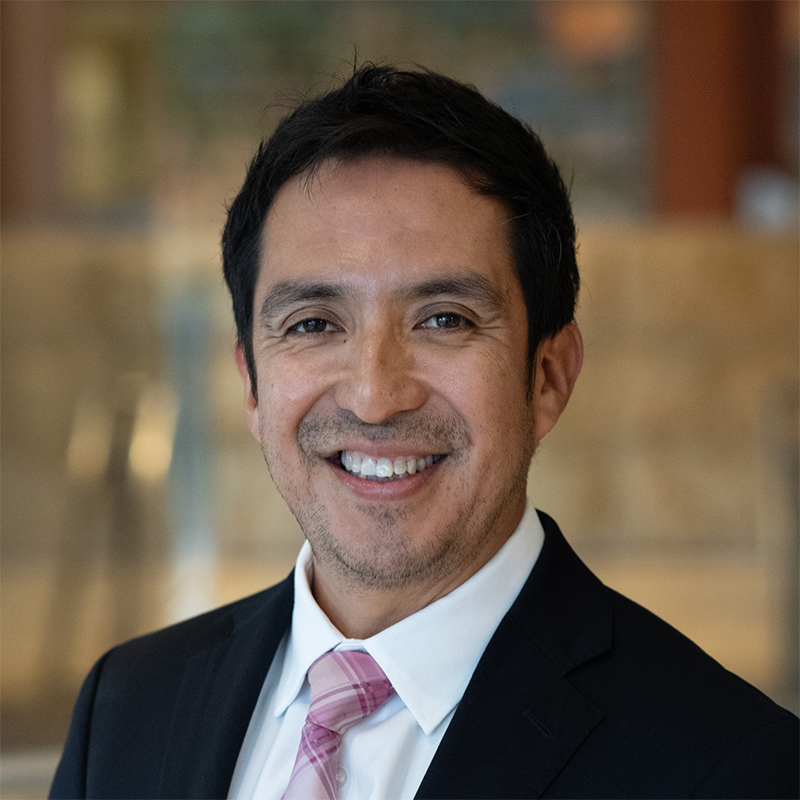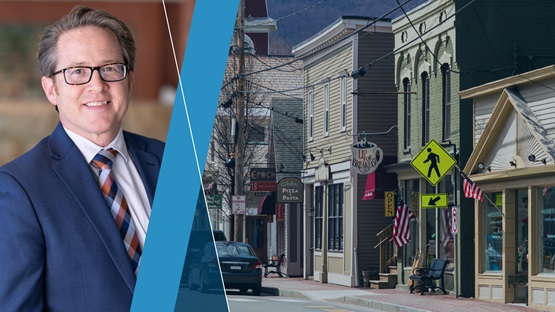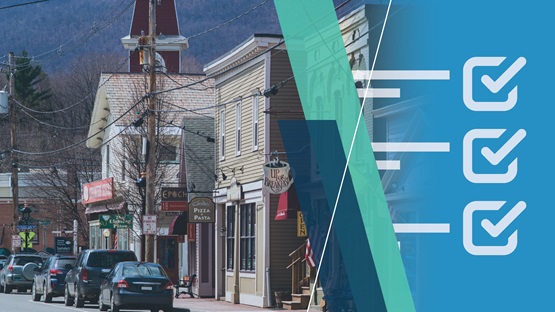Like many restaurateurs, Cal Harris is having a hard time finding the workers he needs at the waffle bar he and his wife recently opened in Superior, Wis.
A desire for higher wages than typically offered in the hospitality industry might have something to do with it, but he thinks there are many other motivations.
“I think people have had time to rediscover themselves,” Harris said during a series of listening sessions hosted by the Minneapolis Fed. “My wife lost her job of 15 years and [opening a restaurant] has always been a dream, so we decided to open.”
Among others who spoke at the sessions held in late September, some said workers have looked for jobs that don’t involve customer service, which are seen as having higher risks of COVID-19 infection. Some said lack of affordable child care during the pandemic made it harder for women to keep their jobs. And some said workers have moved to other industries that pay more.
The listening sessions, one held in-person in Duluth with women and minority business owners and the other held online with labor leaders in the Twin Cities and Montana, are part of the Federal Reserve System’s Fed Listens initiative. In May, the Minneapolis Fed held two online sessions with frontline low-wage workers and women and minority business owners.
Minneapolis Fed President Neel Kashkari used the events to hear from groups that the bank traditionally has not heard from.
In some cases, what he heard were issues commonly discussed by businesses in the pandemic economy, such as hiring challenges and supply chain disruptions. But other issues, such as access to information and funding, were more specific to those around the table.
Need for workers
Service sector industries face some of the biggest challenges with hiring, according to labor representatives. In some areas, employers can’t hire enough workers and are finding ways to make do with those they have, such as restaurants asking customers pick up food at the counter.
The hospitality industry appears to be losing some of its workers to other industries that pay higher wages and do not require contact with customers, decreasing the risk of COVID-19. Labor representatives in the industry reported that many union members have left to take jobs in warehouses or construction firms. One union official said a majority of workers in the industry are women, and they can’t find child care at a price that low-wage workers can afford, so they found other ways to balance their work and life responsibilities.
“Before COVID, we were looking for 30,000 workers in Minnesota every day to join the industry,” said Wade Luneburg, political director at UNITE HERE! Local 17 in the Twin Cities metro area. “And now we’re in a unique position where people have exited at such a level that we still need 30,000 workers today.”
UNITE HERE! represents hotel, restaurant, and other hospitality workers.
Luneburg noted that this is not the case in all areas. In downtown Minneapolis, for example, office closures, the lack of conventions and other business events, and concerns about public safety mean recovery won’t arrive for at least two to three years, he said.
Labor representatives in other industries also reported employers having a hard time with hiring, in part, because wages aren’t going up fast enough.
Construction firms and manufacturers in rural areas face very high material costs, limiting the wage increases they can offer, according to Barb Lau, executive director of the Association of Women Contractors. Workers are also in short supply in those same rural areas, she said.
Al Ekblad, a former officer with AFL-CIO Montana and current board officer with the Minneapolis Fed’s Helena Branch, said the housing shortage in Bozeman and Kalispell, among other places, has increased living costs so much that workers can’t afford to live there, and some employers, such as hospitals and flight services, are driving workers in from farther away and providing housing during the work week.
Labor representatives agreed that employers should be as willing to raise wages as they are willing to pay for higher material costs. “They had no problem paying 60 percent more for the materials that got [run] up,” said Joel Smith, president of the Laborers District Council representing skilled construction workers.
Ekblad said the high demand for labor is at least putting more power back in the hands of workers. “Whether COVID ends tomorrow or ends in six months, people are feeling the ability to make decisions that better their lives. And I think that’s good for workers.”
Kashkari agreed, saying employers have gotten used to being able to put up help wanted ads and expecting large numbers of applicants over the past several decades. “Now you’re starting to see the pendulum swing back.”
Supplies in short supply
Participants in the listening sessions also discussed challenges with supply chain disruptions, which have bedeviled the U.S. economy since the start of the pandemic.
Veronica Quillien, who started VLAM2 Hair Products Manufacturing in Duluth in July 2020, said she imports materials for her specialty products from Africa and lost two shipments worth $10,000. For minority and women entrepreneurs, she said, that amount is very significant.
Supply chain disruptions have affected worker training in the construction industry as well, according to Barry Davies, an officer with Iron Workers Local 512. High prices and delays have created uncertainty about the amount of work that can be done, which limits how many steel workers are recruited for apprenticeship programs. Demand for these training programs is high, and the programs have increased in length from three to four years because of a need for more skilled workers.
“Rebar is up about 60 percent; structural steel is up about 50 percent,” Davies said. “Lead times are also a factor; ordering a bar joist for example, [delivery] is 36 to 38 weeks out from when you order it.”
Getting help
One issue particular to smaller businesses, especially those owned by women and minorities, is the challenges they face getting help.
“Moving from [the Twin Cities to Duluth], access to financial support looks very different,” Quillien said, noting that there is little infrastructure supporting women and minority business owners outside large urban areas. She and other business owners expressed confusion navigating the assortment of government agencies that can provide support.
Nonprofit and other groups that help small businesses and were present at the listening session agreed, saying women and minority business owners often have limited networks to help them access information and resources.
But even business owners who have been able to get help expressed caution as the season changes and the delta variant of COVID-19 spreads, possibly keeping customers homebound and away from stores and restaurants.
Tim Squalls, owner of 144 Music Fashion and More in Duluth, said he was able to access both rounds of the federal Paycheck Protection Program funds and used them to catch up on rent. As the winter arrives, he said, business owners will need all the help they can get.Erick Garcia Luna is a Minneapolis Fed regional outreach director. In this role, he focuses on gathering and analyzing economic intelligence on the regional economy to help inform the work of the Fed. Follow him on Twitter @ErickGarciaLuna.
Tu-Uyen Tran is the senior writer in the Minneapolis Fed’s Public Affairs department. He specializes in deeply reported, data-driven articles. Before joining the Bank in 2018, Tu-Uyen was an editor and reporter in Fargo, Grand Forks, and Seattle.






